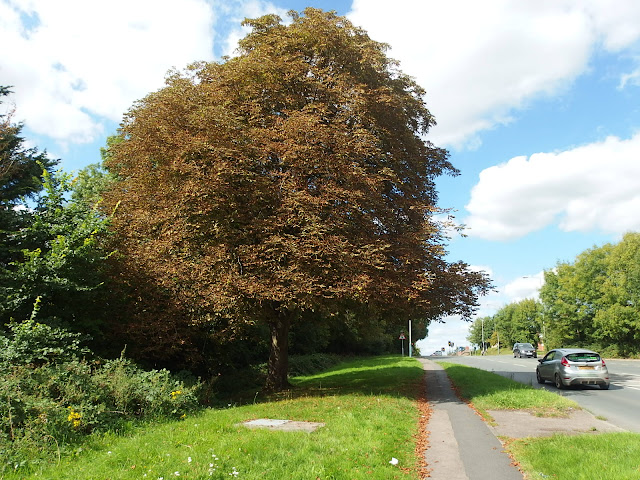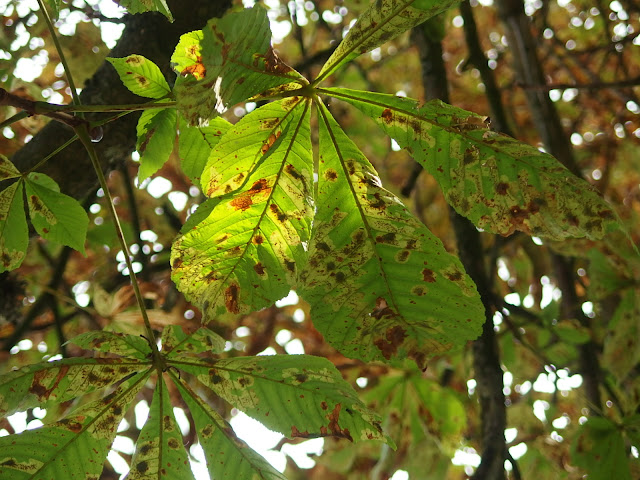Weekend Wandering: Chippenham's horse chestnuts
 |
| Looking up the hill on Malmesbury Road |
 |
| Looking down the hill with the tree featured in the top photo behind me. All the brown you can see are horse chestnut trees |
 |
| Late afternoon sunshine reveals the problem: each brown spot is home to a leaf mining moth |
Most online advice is reassuring about the moth's impact on tree health, and 2017 certainly looks a good year for conkers. I'd like to see some research conducted on the numbers produced, size and seed viability though.
Previously it was thought the moth's effects might make trees more vulnerable to bleeding canker. Research results published by the Forestry Commission seems to lay that concern to rest.
 |
| Sadly the horse chestnuts I can see as I write this post are affected too |
Horse chestnuts are no longer an option for future public planting schemes and I wonder what we might have instead had our house been built a few years later. According to the RHS other chestnut trees are a suitable alternative, with the Indian horse chestnut (Aesculus indica) the closest in size and appearance. It's a good pollinator option too.
A recent chat on the All Horts Facebook Group suggested the pink-flowered red horse chestnut (Aesculus x carnea) isn't affected. This observation is backed up in the Forestry Commission's research linked to above, unless the tree is close to heavily infested horse chestnut(s). I'll be on the look out for any local specimens next spring and monitoring them to see what happens.
How are your neighbourhood's trees looking this weekend?











Sad isn't it? There are two mature chestnuts just outside our garden but very much in view. It has been sad to watch their decline over the years. I've also noticed that we no longer get children straying down into the garden to look for conkers which we did when we first moved here. Sign of the times?
ReplyDeleteYes, really sad Anna. I must have a look at the alternatives so see what their potential for conkers is like. I'll add that to the list for my pink flowered tree hunt next year 😊
Delete